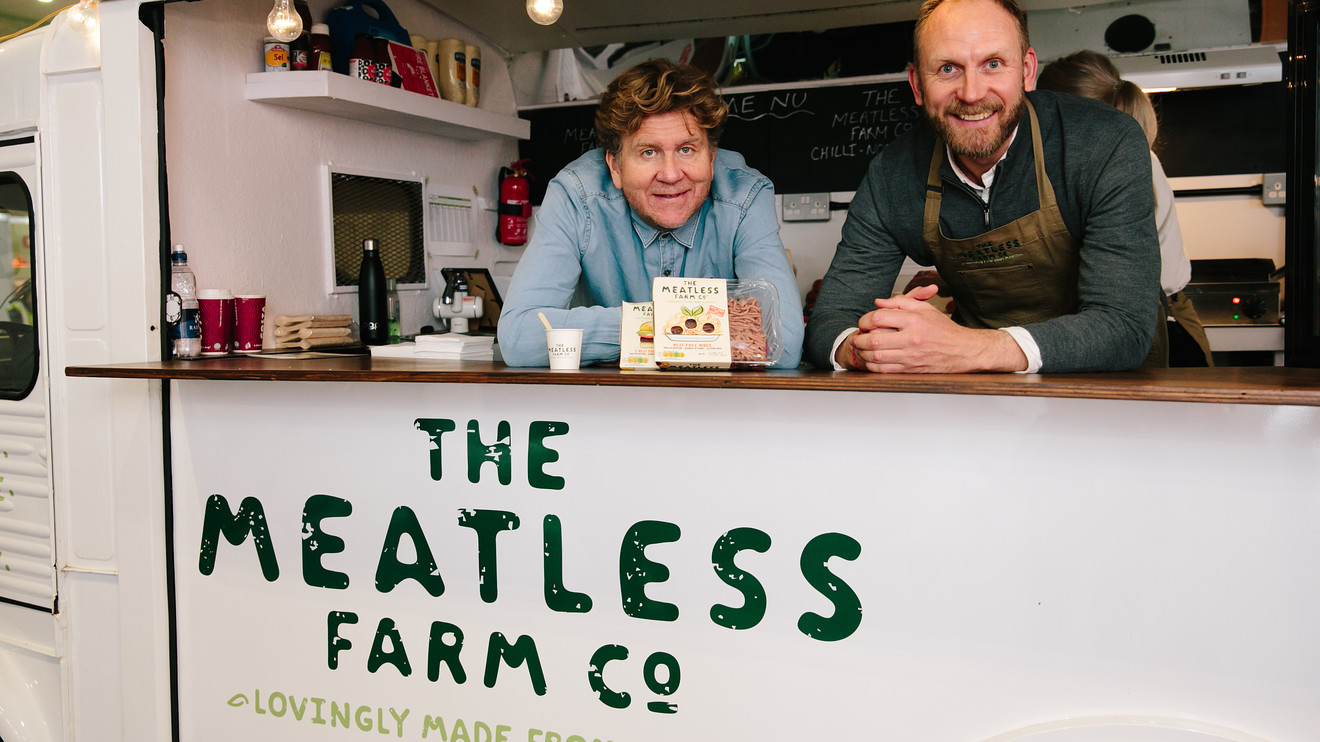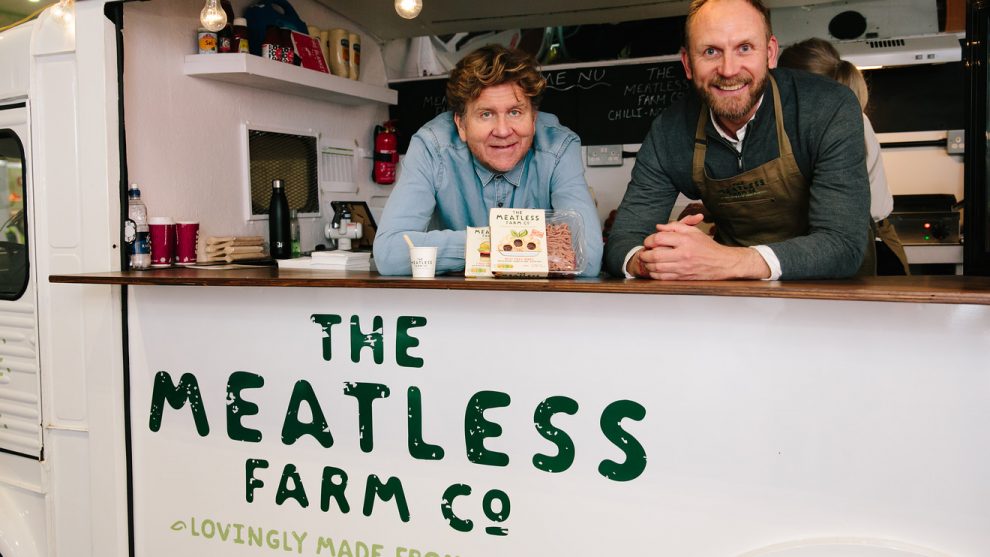
The bosses of vegan-friendly firm The Meatless Farm have called for the traditional meat aisle in supermarkets to be renamed the “protein aisle.”
As it launches in America, the company said it was pushing retailers in the U.K. to be “brave” and put its plant-based protein and other meat alternatives alongside meat on the shelves.
But the firm’s boss said fears vegans won’t walk past slabs of meat may be holding retailers back.
The Leeds, England-based company has pushed its soy, rice and pea protein product into grocers Sainsbury’s SBRY, -0.18% , Co-op and Morrisons MRW, -0.81% and partnered with pub chain Greene King.
The growing demand for fake meat has been led by the popularity of veganism and the appetite for reducing meat consumption on environmental grounds.
See also: Beyond Meat sales nearly quadruple, stock plunges after secondary offering announced
Founder Morten Toft Bech told MarketWatch the company has been testing with Sainsbury’s where to locate the product in stores.
He said: “It’s not in the meat aisle yet in Europe or the U.K. but we are moving towards that.
“The vision is that you walk into a supermarket and it’s no longer called the meat aisle but it’s called the protein aisle – where there is a whole bunch of protein, some of which is from animals and hopefully of lot which is not.”
The Danish entrepreneur said Sainsbury’s had been “very brave” but that other retailers were slower to get on board.
The Meatless Farm launched in the U.S. earlier this week after striking a deal with Whole Foods Market to appear on the shelves of 450 stores across America, where fake meat is sold next to the real thing.
Read: Britain’s answer to Beyond Meat set to launch in the U.S.
Chief executive Rob Woodall, a former Kellogg’s boss, said U.K. retailers were receptive to the idea but needed a push.
He said: “One of the challenges is that vegetarians and vegans don’t really want to go down the meat aisle.
“The solutions for retailers is dual locate – they should have a vegan aisle but then start to drive a bit of a range in the meat aisle, or the protein aisle.”
“The movement is so big, whether it’s meat reducers or vegetarians, there’s an opportunity to do both.”
Fake meat heavyweight Beyond Meat BYND, +0.61% has led the way in the U.S. and plans to expand globally into more than 50 countries.
The company’s shares have surged more than 600% since its IPO in May – while the Dow Jones Industrial Average DJIA, +0.00% has gained 14% in 2019 – giving it a market cap of $10.7bn.
Fellow rival Impossible Foods has also made waves, combining with Burger King for the ‘Impossible Burger’.
Woodall said: “This is a massive trend, driven by concerns over health, the environment and animal welfare, and it’s starting with young people.
“It’s not a one-off fad, it’s a fundamental shift.”












